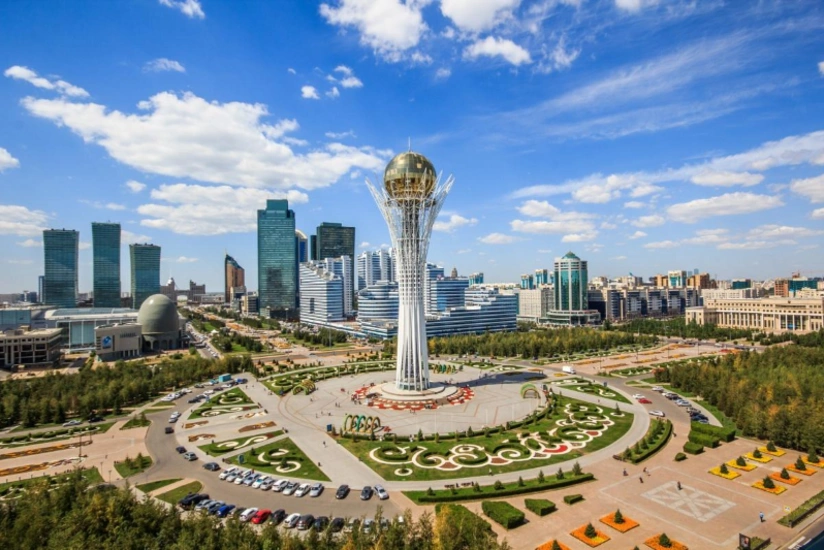Kazakhstan - important platform for dialogue among religious leaders in face of global challenges
- 09 October, 2023
- 09:34

Modern challenges in the field of ensuring peace and security increasingly demonstrate the declining authority of the UN from year to year. The inability of this organization, the need for reform of which is increasingly being discussed from the rostrum of the UN General Assembly, to maintain world order may result in catastrophic consequences, ultimately leading to an intensification of the arms race throughout the world.
One way to prevent this situation is to resort to diplomacy.
However, diplomacy does not work in all situations. Thus, an alternative way of maintaining global peace needs to be developed. And religious leaders can play an important role in this matter.
All religions share some common fundamental values that guarantee the sanctity of human life, mutual support and rejection of destructive tendencies. These principles can be used as the cornerstones of a new world order.
In the context of modern global challenges and destabilization of the foundations of international security, Kazakhstan continues to promote and actualize the religious factor in the rapprochement of different civilizations, cultures and peoples.
Moreover, Kazakhstan is promoting the dissemination of its experience on a global scale, which is embodied in the idea of convening the Congress of Leaders of World and Traditional Religions.
Through the activities of this unique institution, which has been working organically for 20 years since the convening of the first congress in September 2003, Kazakhstan is demonstrating to the entire world community an example of national consensus and consolidation of society.
The seven congresses held in Astana from 2003 to 2022 actively contributed to deepening mutual understanding between Eastern and Western civilizations and developed interreligious and intercultural dialogue.
For the first time, the Congress of Leaders of World and Traditional Religions was convened on September 23-24, 2003 on the initiative of the first President of the Republic of Kazakhstan, Nursultan Nazarbayev.
Speaking on February 13, 2003 at the International Conference of Peace and Harmony, in which representatives of Christian, Muslim, and Jewish organizations took part, Nazarbayev addressed representatives of all faiths with the initiative to hold a Congress of Leaders of World and Traditional Religions in Kazakhstan.
The main priorities of the congress were the establishment of peace, harmony and tolerance as unshakable principles of human existence; achieving mutual respect and tolerance between religions, confessions and ethnic groups and preventing the use of people’s religious feelings to escalate conflicts and hostilities.
Outstanding representatives of Islam, Christianity, Judaism, Buddhism, Shintoism, Taoism and other religions took part in six Congresses of Leaders of World and Traditional Religions in Astana, held in 2003, 2006, 2009, 2012, 2015, 2018 and 2022.
At the dialogue platforms of the congress, a rich and meaningful conversation took place on the spiritual rapprochement of religious communities, as a result of which joint declarations and appeals to peoples and governments were adopted.
This platform has aroused great interest among religious leaders around the world. If 17 delegations from 13 countries of Europe, Asia, Africa and the Middle East took part in the work of the first forum in Astana in 2003, then in the work of the VII Congress of Leaders of World and Traditional Religions, which was held in the capital of Kazakhstan on September 14-15, 2022, Already 100 delegations from 50 countries took part - representatives of Islam, Christianity, Judaism, Shintoism, Buddhism, Zoroastrianism, Hinduism and other religions, including Pope Francis.
President of Kazakhstan Kassym Jomart Tokayev, speaking at the VII Congress of Leaders of World and Traditional Religions, noted that we all have a common goal - establishing harmony of civilizations, strengthening peace and stability, and expressed confidence that the authority of spiritual leaders will help overcome the contradictions of the modern world for the sake of the well-being of all humanity.
Tokayev noted that religious leaders can contribute to healing the wounds of hatred after a long conflict.
“To build a new system of international security, the world needs a new global peace movement. Approximately 85% of people identify themselves with one religion or another, which makes it a significant factor in our lives. Therefore, religious leaders have a significant influence on global affairs,” the Kazakh president said, noting that the creation and operation of such a platform for dialogue between religious leaders in Kazakhstan is not accidental, because currently representatives of more than 100 ethnic groups live in harmony and about 4,000 religious associations representing 18 faiths operate freely in this country.
The atmosphere of hostility and mutual mistrust is returning to international relations. What can be countered to modern challenges? History gives only one answer - good will, dialogue and joint efforts. And religious leaders could make their significant contribution to this issue.
